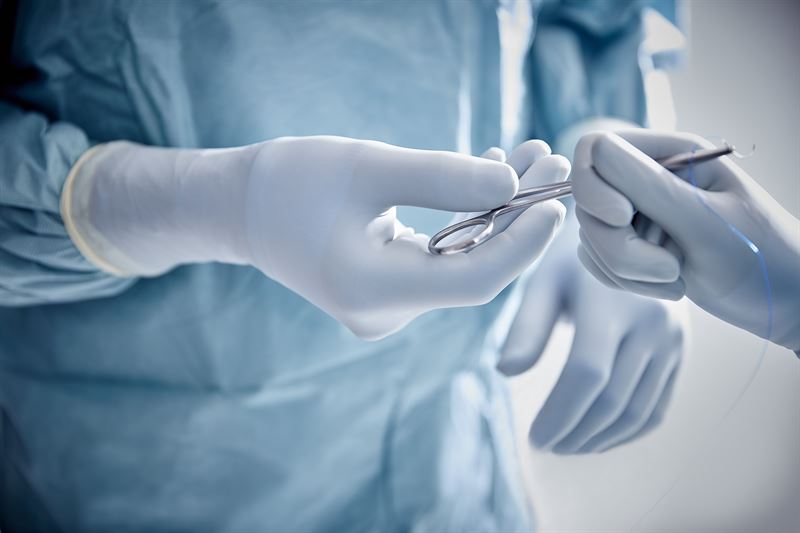More than 9 in 10 surgeons encounter a needlestick injury

- 81% believe high quality gloves impact patient outcomes;
- 92% agreed high quality gloves improve safety of clinicians;
- Survey demonstrates importance surgeons place on high quality gloves in protecting against infection and patient safety;
95% of surgeons have either been personally affected by a needlestick injury or have seen a colleague experience one, increasing the risk of infection, a new global survey of surgeons has found.
Clinician safety
An estimated two million needlestick injuries occur among health workers each year, resulting in increased exposure to HIV, Hepatitis C and other blood-borne viruses.[1] Needlestick injuries occur when a needle or other sharp instrument accidentally penetrates the skin, yet the underreporting to occupational health departments is well established.[2] The survey revealed 93% of surgeons think that high quality gloves reduce the chance of exposure to blood-borne viruses and 83% said the quality of gloves affects their sense of being protected from needlestick injuries.
Patient safety
Healthcare-associated infections (HAIs) are the most frequent adverse event in healthcare delivery worldwide.[3] Hundreds of millions of patients are affected by HAIs worldwide each year, leading to significant mortality rates. Of every 100 hospitalised patients at any given time, an estimated seven patients in developed countries will acquire at least one HAI.[4]
On the topic of patient safety, 81% of surgeons believe that high quality gloves impact overall patient outcomes and 89% agreed that high quality gloves improve patient safety in the operating theatre. When asked about glove failure during an operation, 78% of surgeons responded that it increases the risk of surgical site infections.
The survey – the first of its kind undertaken – was conducted by SERMO for Mölnlycke. It looked at key opinions from 510 surgeons across six countries relating to infection prevention and the role of high quality gloves in improving patient and clinician safety.
Commenting on the survey findings, John Timmons, Clinical Staff Nurse and International Medical Director, said:
“Each year, millions of surgeons and their teams risk exposure to life threatening blood-borne viruses and this ground-breaking survey highlights the value that surgeons across the globe place on high quality gloves. Surgeons clearly recognise their role in both ensuring the safety of surgeons and improving outcomes for patients.
Surgical gloves are one of the key factors that prevent infections in the operating room and should not be viewed as a commodity. High quality means fewer glove failures, yet we are increasingly seeing healthcare systems around the world prioritise price over quality.”
References:
[1]https://www.ncbi.nlm.nih.gov/pmc/articles/PMC4145516/
[2]https://publishing.rcseng.ac.uk/doi/pdf/10.1308/003588409X359213
[3]https://www.who.int/gpsc/country_work/gpsc_ccisc_fact_sheet_en.pdf
[4]https://www.who.int/gpsc/country_work/gpsc_ccisc_fact_sheet_en.pdf
Media enquiries
Michael Latham, Lexington Communications
E: Molnlycke@lexcomm.co.uk
T: 020 7025 2300
About Mölnlycke
Mölnlycke is a world leading medical solutions company. We develop and bring to market innovative wound care and surgical solutions along the entire continuum of care – from prevention to post-acute settings. Our solutions provide value for money, supported by clinical and health economic evidence.
Mölnlycke was founded in 1849. Nowadays, our solutions are available in more than 100 countries; we are the number one global provider of advanced wound care and single-use surgical products; and we are Europe’s largest provider of customised trays. Our headquarters are in Gothenburg, Sweden and we have about 8,000 employees around the world. Learn more at molnlycke.com
Tags:


